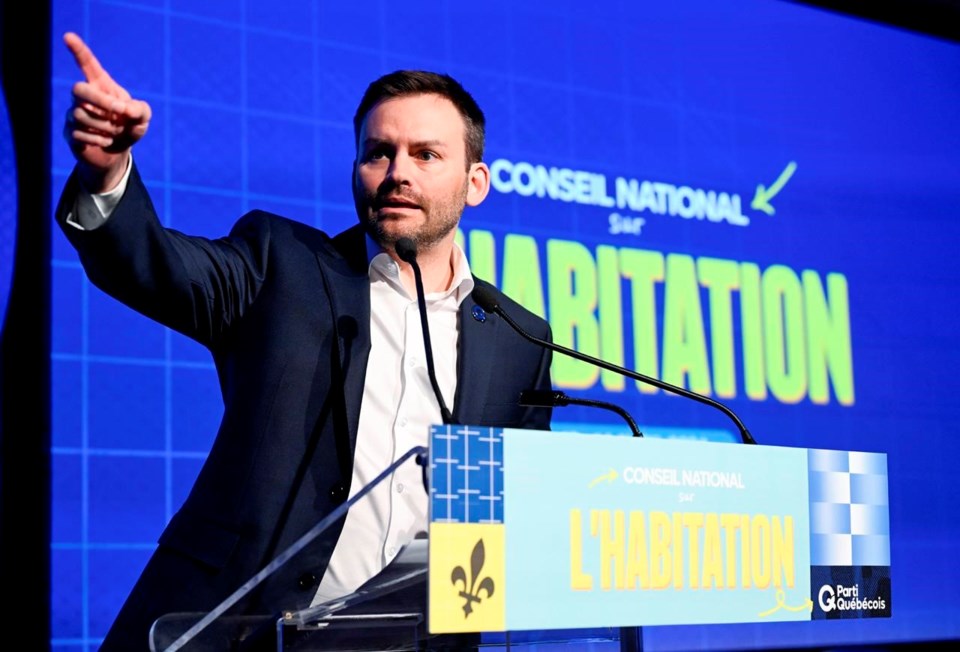DRUMMONDVILLE, Que. — Parti Québécois Leader Paul St-Pierre Plamondon reiterated on Sunday his pledge for a third referendum on independence should his party take power in the next election.
At the PQ's national council in Drummondville, Que., St-Pierre Plamondon told some 500 party members that Quebecers have one "ultimate" chance to secure their language and culture amid what he called an "existential threat" from Ottawa and the province's declining weight within the federation.
"One thing is certain," he said. "Our moment will arrive sooner than we think, meaning not at some long-term idealized date, but in a few years — before the end of the decade.
"We will indeed experience a third referendum," he said.
The 47-year-old leader has driven renewed focus on sovereignty since he took the helm in 2020 after the party's worst electoral showing in nearly 50 years. But his spot atop the polls in recent months lent a new edge to this weekend's pledge of a referendum before 2030.
Barely a year and a half after the PQ was seen as moribund, St-Pierre Plamondon's surging popularity also comes despite flat support for independence, which recent polls show was backed by only about a third of respondents. Some observers have attributed the PQ rebound largely to growing dissatisfaction with Premier François Legault and his Coalition Avenir Québec government.
St-Pierre Plamondon's speech provoked strong reactions from adversaries.
In a social media post, the premier's head of strategy Stéphane Gobeil described the vow of a vote — which presumes a PQ victory at the ballot box in 2026 — as "either arrogance or poorly controlled euphoria."
Interim Liberal Leader Marc Tanguay deemed his rival the PQ's "most radical leader" and accused him of stoking fear to push independence.
St-Pierre Plamondon claimed the federal government has moved to encroach on Quebec's jurisdiction, including on housing and health care, where dire shortages plague the province.
“You're going to tell me: what does it change if housing improves,” he told news reporters, adding that federally induced upgrades would mean succumbing to an "increasingly unitary state."
At times, the address struck an almost apocalyptic tone.
"Canada has a dark future in store for us," said St-Pierre Plamondon. "It’s a regime that only wants to crush those who refuse to assimilate."
At other points, the speech hearkened back to refrains familiar to earlier generations, citing a duty to "emerge from our defeatism."
"Think like Alphonse and Dorimène Desjardins, think like Bombardier, think like Maurice Richard," he shouted. "We have it in us, it’s in our DNA."
The previous two referendums on sovereignty took place in 1980 and 1995. In the latter, Quebec voters came within a hair's breadth of opting for independence, as 49.42 per cent checked a box next to "Yes," while 50.58 per cent ticked the one next to "No."
This report by The Canadian Press was first published April 14, 2024.
The Canadian Press



